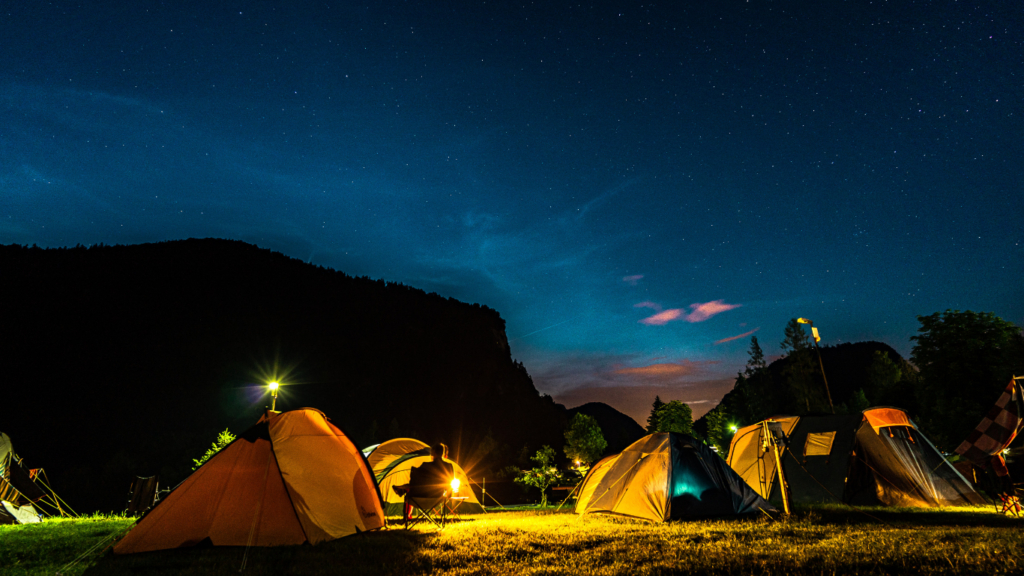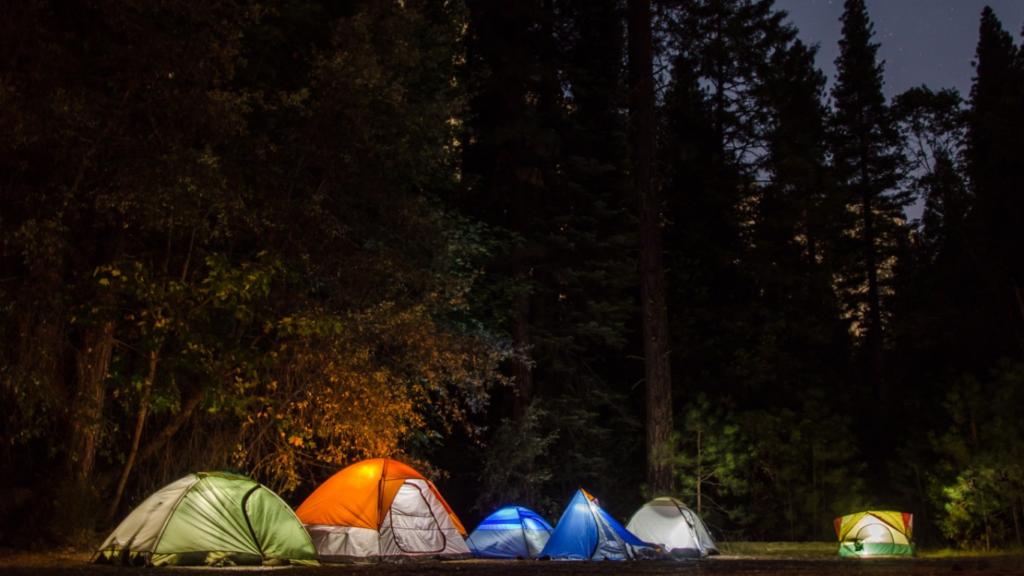Planning a stress-free family camping trip can be an exciting yet daunting task. As a seasoned camper and outdoor enthusiast, I’ve learned that a well-thought-out plan is the key to a successful and enjoyable adventure in the great outdoors.
From choosing the perfect location to packing essential gear, every detail plays a crucial role in ensuring a memorable experience for the whole family.
In this article, I’ll share my top tips and tricks for planning a family camping trip that is not only stress-free but also fun-filled. Whether you’re a first-time camper or a seasoned pro looking to streamline your planning process, I’ve got you covered.
Join me as I walk you through the essential steps to take before, during, and after your family camping trip to make it a smooth and unforgettable journey for everyone involved.
Essential Tips for Planning a Stress-Free Family Camping Trip
Planning a stress-free family camping trip requires careful consideration of various factors to ensure a smooth and enjoyable outdoor experience. Based on my years of camping expertise, I’ve compiled essential tips to help families prepare for their adventure seamlessly.
1. Choose the Right Campsite
Selecting the perfect campsite is crucial for a successful camping trip. Look for a location that caters to your family’s needs, whether it’s access to amenities, proximity to hiking trails, or a serene environment.
Ensure the campsite is family-friendly and offers the activities your family enjoys.
2. Prepare a Detailed Packing List
Create a comprehensive packing list to avoid any last-minute scrambling. Include essential items such as tents, sleeping bags, cooking equipment, clothing layers, and personal hygiene products. Don’t forget to pack entertainment options for downtime, such as board games or nature guides.
3. Plan Nutritious Meals
Plan your meals ahead of time to ensure a balanced and nutritious diet during your camping trip. Opt for easy-to-cook meals that require minimal preparation and cleanup.
Consider prepping some ingredients at home to streamline cooking at the campsite.
4. Familiarize Yourself with Camping Equipment
Before embarking on your trip, familiarize yourself with all camping equipment, especially if you’re using new gear. Practice setting up your tent, operating camping stoves, and using any other tools you’ll need during your stay.
This preparation can prevent stress and confusion at the campsite.
5. Establish Safety Protocols
Prioritize safety by establishing clear safety protocols with your family before the trip. Educate everyone on basic first aid, emergency procedures, and wildlife awareness.
Assign responsibilities to each family member to ensure everyone plays a part in maintaining a safe camping environment.
6. Opt for Trial Runs
If you’re new to family camping or trying out unfamiliar equipment, consider a trial run in your backyard or a nearby campground. This mini-adventure allows you to test your gear, practice setting up camp, and familiarize yourself with the camping routine before committing to a more extended trip.
7. Embrace Flexibility
While planning is essential, be prepared to adapt to unforeseen circumstances and embrace flexibility during your camping trip. Weather changes, unexpected events, or spontaneous opportunities can enrich your experience, making it more memorable and exciting for the whole family.
By incorporating these essential tips into your planning process, you can ensure a stress-free and enjoyable family camping trip filled with unforgettable moments in the great outdoors.
Choosing the Right Destination
When planning a stress-free family camping trip, selecting the perfect destination is crucial. It sets the tone for your entire outdoor experience, so it’s essential to choose wisely. Here are important factors to consider when deciding on the ideal camping spot:
Considering Family-Friendly Campgrounds
Exploring family-friendly campgrounds is key to a successful trip. These campgrounds offer amenities and activities tailored to families with children, ensuring everyone has a great time. Look for campgrounds with designated family areas, playgrounds, safe swimming areas, and organized family-friendly activities to keep everyone entertained.
Proximity to Facilities and Services
Opt for a campground that is conveniently located near essential facilities and services. Consider proximity to restrooms, showers, water sources, and garbage disposal areas for convenience. Additionally, being close to hiking trails, fishing spots, or nature centers can enhance your camping experience while providing opportunities for exploration and adventure.
Researching Campground Regulations
Before finalizing your camping destination, familiarize yourself with the campground’s rules and regulations. Some campgrounds have specific guidelines regarding quiet hours, campfire restrictions, waste disposal, and pet policies.
By understanding and adhering to these rules, you can ensure a harmonious camping experience for your family and fellow campers.
Weather and Seasonal Considerations
Take into account the weather and seasonal conditions when choosing a camping destination. Be prepared for temperature variations, precipitation, and natural elements based on the time of year you plan to camp.
Research the typical weather patterns of the area to pack appropriate clothing and gear, ensuring your family stays comfortable throughout the trip.
Accessibility and Safety
Prioritize safety and accessibility when selecting a camping destination for your family. Choose campgrounds that are easily accessible by vehicle, especially if you’re traveling with young children or elderly family members.
Check for adequate lighting, emergency services availability, and cell phone reception to ensure you can address any unexpected situations promptly while keeping your family safe. By considering these essential factors when choosing the right camping destination for your family, you can pave the way for a smooth and enjoyable outdoor adventure.
Selecting a family-friendly campground with convenient amenities, respecting campground regulations, and prioritizing safety will contribute to a memorable camping experience for everyone.
Packing Smart for a Family Camping Adventure
Packing efficiently for a family camping trip is key to a smooth outdoor experience. As a seasoned camper, I know the importance of having all the essentials without overpacking, ensuring we have what we need without unnecessary items weighing us down. Here are some practical tips to pack smart for your next family camping adventure:
- Make a Detailed Checklist: Before you start packing, create a comprehensive checklist of all the items you’ll need for the trip. Include camping essentials like tents, sleeping bags, cooking equipment, clothing layers, first aid kit, and personal items. Having a list ensures you don’t forget crucial gear and helps avoid last-minute stress.
- Pack Light and Versatile Clothing: Opt for lightweight and quick-drying clothing that can be layered for changing weather conditions. Pack clothes that can serve multiple purposes to minimize the number of items you need. Remember to pack sturdy footwear suitable for hiking and exploring the outdoors.
- Organize Gear for Easy Access: Pack strategically by organizing your gear in separate bags or containers for easy access. Keep frequently used items like flashlights, snacks, and sunscreen within reach. Utilize storage containers to keep smaller items organized and prevent them from getting lost in larger bags.
- Consider Meal Planning and Prep: Plan your meals in advance and prep ingredients to minimize the time spent cooking at the campsite. Consider easy-to-make meals that require minimal cooking equipment. Pack non-perishable snacks and ingredients to avoid food spoilage and reduce waste.
- Prioritize Safety Essentials: Ensure you have essential safety items such as a first aid kit, emergency contacts, and navigation tools. Pack adequate insect repellent, sunscreen, and necessary medications. Familiarize yourself with emergency protocols and share them with all family members.
- Environmental Considerations: Practice Leave No Trace principles by packing out all trash and minimizing environmental impact. Use reusable containers and avoid single-use plastics. Be mindful of campfire regulations and pack a portable camp stove for cooking to reduce fire risks.
By following these packing tips and being organized, you can set the stage for a stress-free family camping adventure. Remember, being prepared and packing smart allows you to focus on creating lasting memories with your loved ones in the great outdoors.
Meal Planning and Prep Strategies
When it comes to meal planning for a family camping trip, I always rely on efficient strategies to make the cooking process hassle-free and enjoyable for everyone. Here are some practical tips to help you prepare delicious meals while camping:
- Prep Ingredients Ahead of Time: Chop, marinate, and pre-cook ingredients at home to minimize prep work at the campsite. Prepping in advance saves time and reduces the effort needed to cook meals outdoors.
- Simple and Nutritious Recipes: Opt for simple recipes that require minimal ingredients and preparation time. Focus on nutritious meals that provide energy for outdoor activities. One-pot meals and foil packet recipes are great options for easy campsite cooking.
- Pack Meal Essentials: Create a checklist of essential meal items, including non-perishable foods, spices, condiments, and cooking utensils. Ensure you have enough fuel for cooking and consider portable cooking options like a camping stove or grill.
- Plan Meals in Advance: Outline a meal plan for each day of your camping trip to avoid last-minute stress. Consider dietary restrictions or preferences of family members when planning meals. Having a meal schedule simplifies grocery shopping and meal prep.
- Storage and Organization: Keep food items organized in coolers or food storage containers to maintain freshness and prevent spoilage. Labeling containers and bags can help you locate ingredients easily. Dispose of food waste properly to avoid attracting wildlife.
Setting Up Camp Efficiently
When setting up camp, efficiency is key to ensuring a smooth and enjoyable experience for the whole family. Here are some practical tips to help streamline the process:
- Arrival and Site Selection: Upon arrival at the campsite, I’d recommend selecting a spot that meets your family’s needs. Look for a level ground to pitch your tent, preferably close to essential facilities like restrooms and water sources. Choosing a shaded area can also help keep you cool during hot days.
- Tent AssemblySetting up your tent efficiently can save you time and frustration. Familiarize yourself with the tent setup instructions before your trip, and practice assembling it at : home if possible. Assign tasks to each family member to streamline the process and ensure everyone knows their role.
- Gear Organization: Organizing your camping gear is crucial for easy access and a clutter-free campsite. Keep essential items like flashlights, first aid kits, and cooking supplies in easily reachable places. Consider using storage bins or labeled bags to keep things organized throughout your stay.
- Campsite Layout: Create a designated area for different activities at the campsite. Set up a cooking area with a stove or grill, a relaxation spot with chairs or a picnic blanket, and a sleeping area inside the tent. Clear pathways between these areas to prevent tripping hazards and promote a tidy campsite.
- Safety Measures:Prioritize safety by setting up your campsite with precautions in mind. Place a mat outside the tent entrance to minimize dirt inside, store food properly to prevent attracting wildlife, and keep a fire extinguisher within reach. Familiarize yourself and your family with emergency procedures for different scenarios.
By following these efficient camp setup tips, you can kickstart your family camping trip on the right foot and create lasting memories in the great outdoors.
Navigating Activities for All Family Members
Exploring activities that cater to every family member is crucial in ensuring an enjoyable and inclusive camping experience. I’ll share practical tips to help you plan a variety of activities that appeal to different interests and age groups, fostering bonding and fun during your trip.
Engaging Outdoor Adventures
Including engaging outdoor activities like hiking, fishing, or nature walks can offer a mix of excitement and relaxation for everyone. Exploring nature trails or engaging in wildlife spotting can bring a sense of adventure to the trip.
Interactive Campsite Games
Pack a variety of campsite games such as cards, board games, or frisbees to keep everyone entertained during downtime at the campsite. Hosting friendly competitions or scavenger hunts can add an element of excitement and friendly rivalry to the trip.
Creative Crafting Sessions
Organizing craft sessions where family members can create nature-inspired art or DIY campsite decorations can be a fun and creative way to bond. Collecting materials from the surroundings and engaging in art projects can spark creativity and provide a memorable keepsake from the trip.
Campfire Stories and Songs
Gathering around the campfire for storytelling or singing songs can create a cozy and communal atmosphere for the whole family. Encouraging everyone to share their stories or favorite campfire tunes can enhance the camping experience and create lasting memories.
Stargazing and Night Sky Observations
Taking time to stargaze and marvel at the night sky can be a peaceful and awe-inspiring activity for family members of all ages. Learning constellations or spotting shooting stars together can deepen the connection with nature and foster a sense of wonder.
By incorporating a diverse range of activities that cater to all family members, you can create a well-rounded camping experience that promotes togetherness and creates lasting memories.
Safety Measures during the Camping Trip
When planning a family camping trip, ensuring safety is paramount to guarantee a successful and stress-free outdoor adventure. Here are some key safety measures to consider:
- First Aid Kit: Pack a well-stocked first aid kit containing essentials like bandages, antiseptic wipes, pain relievers, and any necessary medications tailored to your family’s needs.
- Emergency Contacts: Keep a list of emergency contacts handy, including local emergency services, campground staff, and any relevant medical professionals.
- Fire Safety: Follow all fire safety regulations at the campsite, including proper fire pit usage, extinguishing fires completely before leaving, and keeping flammable materials away from open flames.
- Weather Awareness: Stay informed about weather forecasts for the camping area and be prepared for changing conditions. Have appropriate clothing and gear for both sunny and inclement weather.
- Navigation Tools: Bring along navigation tools such as a map, compass, or GPS device to prevent getting lost while exploring the surroundings.
- Insect Protection: Use insect repellent and protective clothing to guard against bug bites and stings, especially in areas prone to insects like mosquitoes or ticks.
- Supervision: Maintain a watchful eye on children at all times, especially near water bodies, trails, or unfamiliar terrain, to prevent accidents or wandering off.
By prioritizing safety measures during your family camping trip, you can enjoy a worry-free experience in the great outdoors.



 William Denovan played a crucial role in shaping the success of Dazzling Holly Moms, contributing his expertise in content strategy and platform development. His ability to create engaging, informative content helped establish the platform as a valuable resource for modern mothers. William's dedication to ensuring the platform consistently delivers high-quality parenting tips, wellness advice, and travel recommendations has been instrumental in its growth. His contributions continue to enhance the experience for moms seeking guidance and inspiration on their parenting journey.
William Denovan played a crucial role in shaping the success of Dazzling Holly Moms, contributing his expertise in content strategy and platform development. His ability to create engaging, informative content helped establish the platform as a valuable resource for modern mothers. William's dedication to ensuring the platform consistently delivers high-quality parenting tips, wellness advice, and travel recommendations has been instrumental in its growth. His contributions continue to enhance the experience for moms seeking guidance and inspiration on their parenting journey.